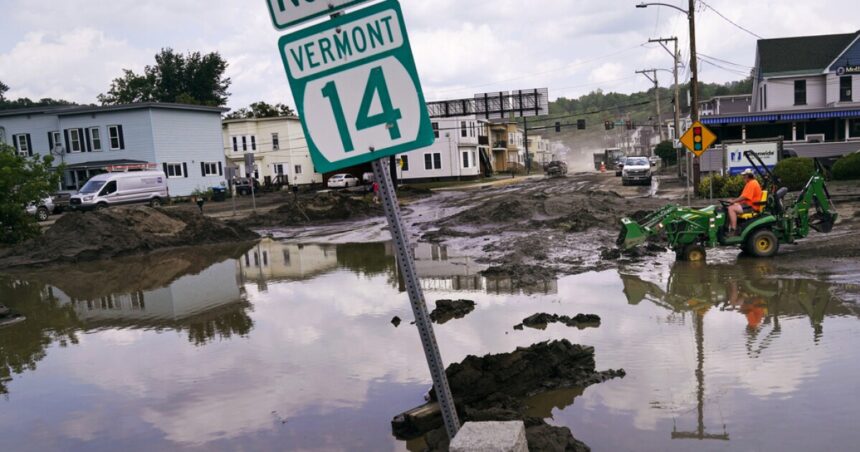Vermont has made history by becoming the first state to pass a law that requires fossil fuel companies to pay for the damage caused by climate change. This decision follows catastrophic flooding and extreme weather events in the state.
Republican Governor Phil Scott allowed the bill to become law without his signature, expressing concerns about the costs involved in taking on “Big Oil” in a legal battle. However, he acknowledged the necessity of addressing the impact of climate change.
In a letter to lawmakers, Governor Scott recognized the need for funding to mitigate the effects of climate change that have adversely affected Vermont. Despite being a moderate Republican in a predominantly Democratic state, he took the step of allowing the bill to become law.
Last summer, Vermont experienced severe flooding that affected several communities, including the capital city of Montpelier. The aftermath of this natural disaster led to significant damage and long recovery periods for businesses and homeowners.
The legislation requires the Vermont state treasurer to provide a report on the total cost of greenhouse gas emissions in the state from 1995 to 2024. Companies responsible for significant emissions will be held accountable through a polluter-pays model.
The funds collected will be used for various purposes, such as improving infrastructure, upgrading stormwater systems, and enhancing energy efficiency in buildings. Similar measures are being considered in other states like Maryland, Massachusetts, and New York.
While the oil and gas industry opposes the legislation, Vermont lawmakers are confident in the legal foundation of the bill. State Representative Martin LaLonde believes that it is crucial for companies to take responsibility for their role in climate change and contribute to the cleanup efforts.





